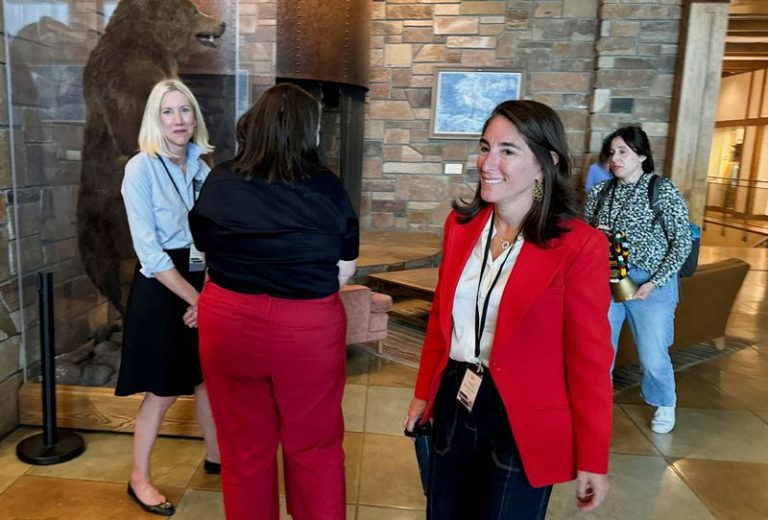By Michael S. Derby
(Reuters) – In her first major policy speech, Federal Reserve Bank of Cleveland President Beth Hammack said on Friday she’s keeping her options open when it comes to the central bank’s next policy meeting, as broader economic conditions continue to argue for a slowdown in the pace of rate cuts.
“I believe we are at or near the point where it makes sense to slow the pace of rate reductions,” Hammack said in the text of a speech prepared for delivery before The City Club of Cleveland. “Moving slowly will allow us to calibrate policy to the appropriately restrictive level over time given the underlying strength in the economy,” she said.
As for what will happen at the Federal Open Market Committee meeting scheduled for Dec. 17-18, Hammack said that more data is coming between now and then, noting she “will maintain an open mind” about how to set the federal funds rate, which is currently set between 4.5% and 4.75%.
Hammack noted that as of yesterday financial markets were pricing in one rate cut between now and the end of January and “a few” more easings by the close of 2025. “This path is consistent with my current expectation for the funds rate, based on my forecast that features solid economic growth, a low unemployment rate, and gradual improvements in inflation,” she said.
Hammack, who took command of the Cleveland Fed in August after a long career in financial markets, spoke in the wake of the release of robust November hiring data and comments from other central bank officials. Financial markets are eyeing a quarter percentage point cut in the funds rate at the upcoming meeting but there is great uncertainty about what comes after that.
Hammack said in her remarks that keeping monetary policy restrictive makes sense given the current state of the economy. And while she noted estimating the level of restraint is hard to do, “resilient growth, a healthy labor market, and still-elevated inflation suggest to me that it remains appropriate to maintain a modestly restrictive stance for monetary policy for some time.”
Keeping some restraint on the economy should help bring inflation that is still too high back down to the Fed’s 2% target.

